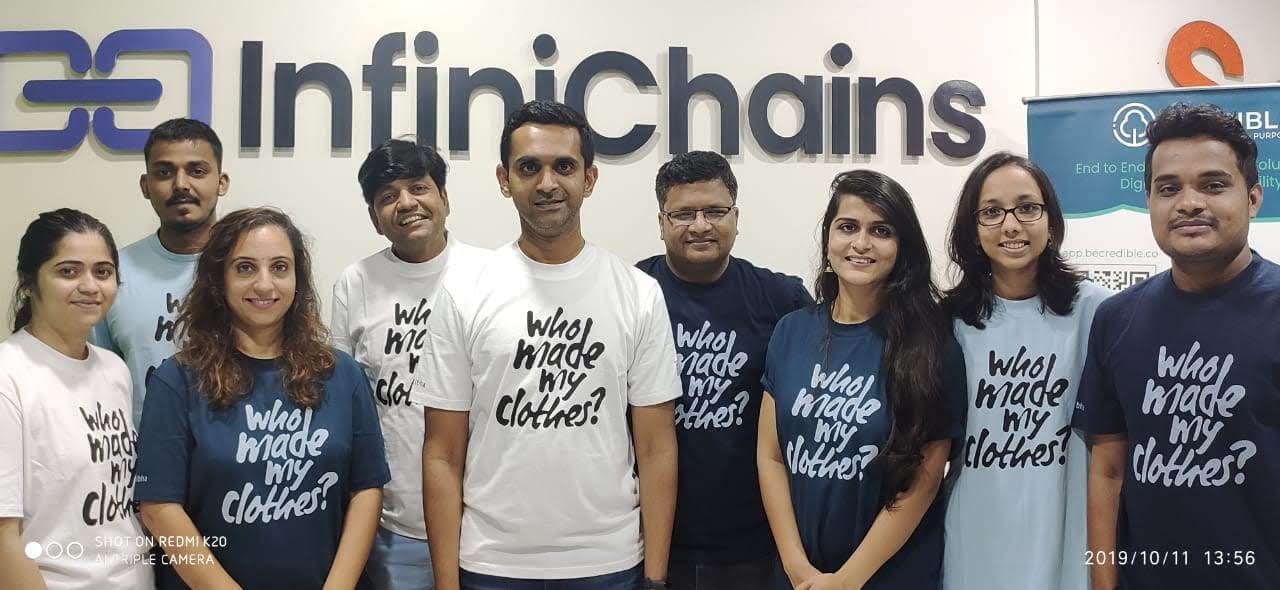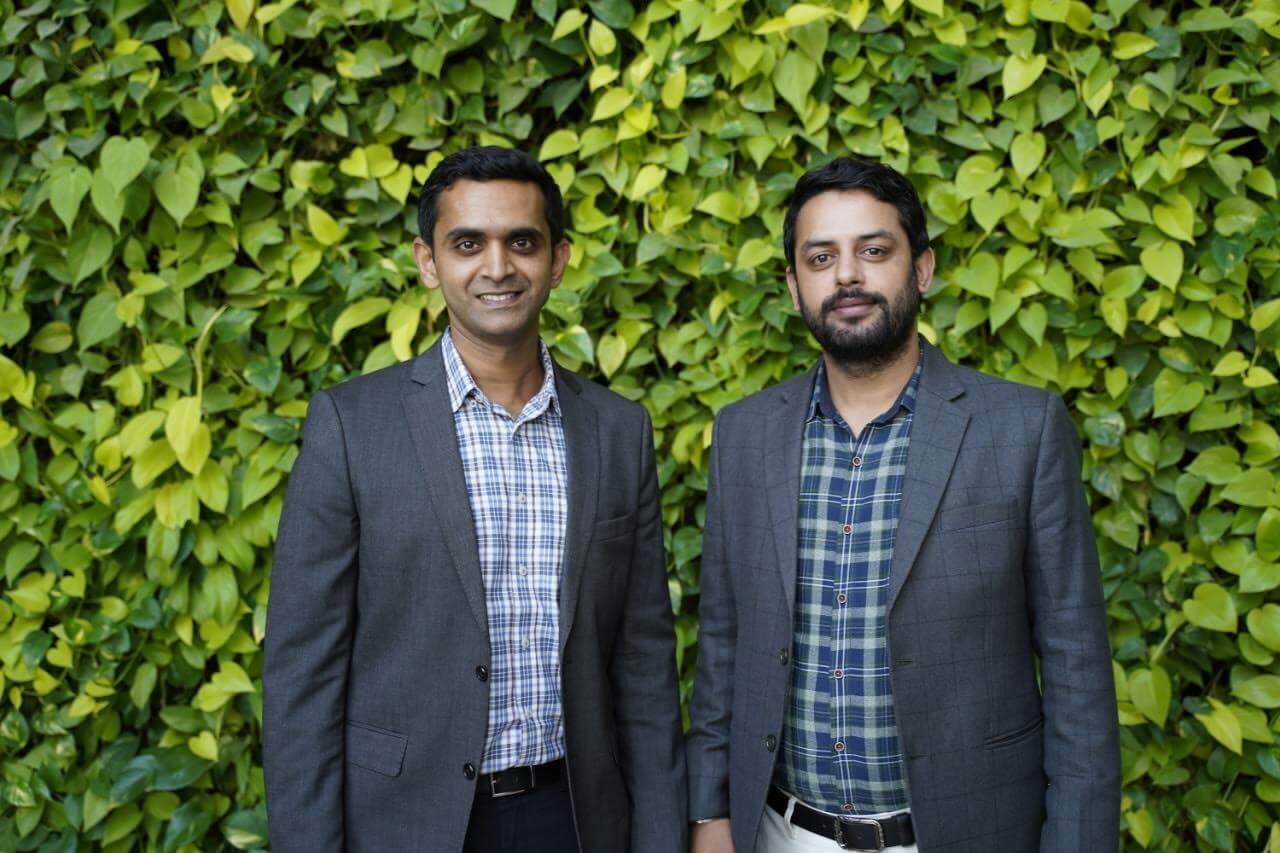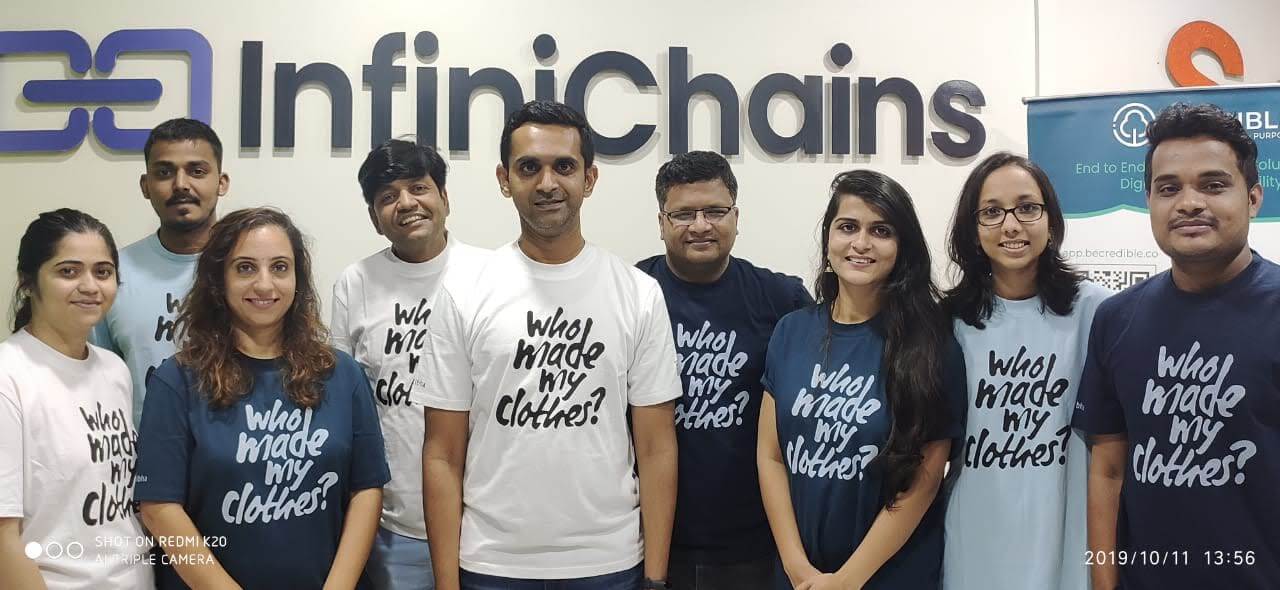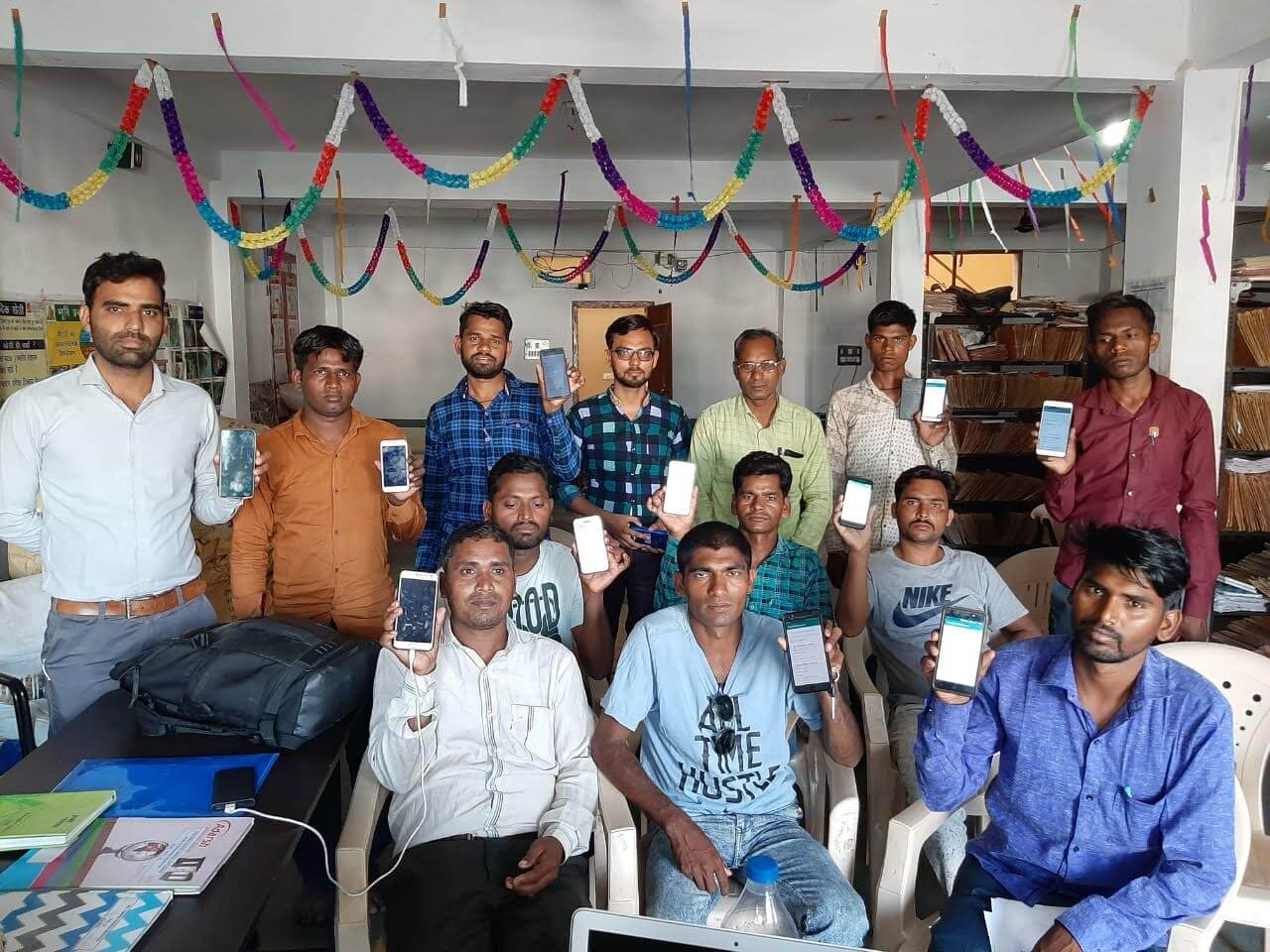
Otis Robinson speaks with Parth Patil, chief executive officer (CEO) at Infinichains, about the company’s plans to reduce opacity within the Indian textile supply chain and bring value back to raw material farmers using blockchain.
Manufacturers and raw material farmers in Asian nations are working on slim margins; manufacturing labourers can often be paid below their worth, while raw material farmers have falling bottom lines. Yet, within the textile & apparel industry, many European businesses have value chains that stretch through these countries and, despite awareness of the challenges they face and their own social responsibility, demand investment into sustainable practices and traceability as a priority, sometimes at the disregard of fair wages. Plenty of criticism suggests clothing brands must ensure garment workers get a living wage: campaigners in Asia demanded they take responsibility for inequalities in their supply chains, Reuters has reported.
“That’s what we want to change,” says Parth Patil, chief executive officer (CEO) and managing director (MD) at Infinichains, a company with a remit to develop an end-to-end traceability solution within multiple industries including the textile sector while doubly offering raw material farmers opportunities for growth. Infinichains is a member of Fashion For Good, a global initiative that connects innovators to industry to drive adoption of sustainable solutions throughout the supply chain.
With pilots to begin in India later this year, the company aims to implement a smartphone-based transaction monitoring system (rooted in blockchain) throughout the textile supply chain to improve transparency and sustainability monitoring. But the added benefit is that this will send a ripple effect back down the supply chain to improve the margins and wages of the industry’s labourers: “By making sustainability practices cheaper to manage, we will improve [farmers’] bottom lines and get better margins for their produce, and they will be able to hopefully pay their workers better.”
Solid foundations
The US-based company was launched in 2018: in Uganda, the pharmaceutical industry required an end-to-end traceability solution to stop the spread of counterfeit drugs. Patil, a Silicon Valley technology veteran, along with two co-founders – Ravi Agrawal and Purushottam Agrawal – built a solution which would address this.
“But later, we found that our technology could be used in other domains as well,” Patil explains. “We encountered the textile domain; we worked closely with a customer in this domain and built an end-to-end solution that would show the entire journey of how garments are produced.”
The company chose blockchain as its traceability solution because of its key qualities: “We needed a system that was very good at securely storing the data and very good at being able to share this data between various parties that work in the value chain. […] It’s a very solid foundation to solve the kind of problems that we are going after, so that’s why we chose the blockchain.”
Infinichains operates with Hyperledger Fabric, a blockchain started in December 2015 by the Linux Foundation, with contributions from multinational technology company IBM, Silicon Valley-headquartered corporation Intel and US software company SAP Ariba.
Through Infinichains, all stages of garment manufacturing can be monitored through seeding to raw materials to assembly, dyeing and finishing – all the way through to the finished garment, via a mobile app. The data input into the system, which includes photographic images of the transactions, is tagged with GPS to improve transparency. For cotton, for example, the mobile app can trace the material from seed distribution through to crop entry, internal inspection, harvesting, lot creation and more. In essence, Patil says, the digital signatures capture every step of the supply chain.
The solution proves beneficial for low-level farmers, Patil said in a Fashion For Good webinar titled Meet the Innovators – South Asia Edition. During the Q&A, Patil explained the Infinichains solution can save valuable working hours through the automation of data entry; doubly, the improved data entry can beneficially highlight yield, thus connect farmers with loan providers in India who currently lack sufficient information about seasonal produce. At the other end of the supply chain, brands can become more aware of how money is distributed across farmers and workers, thus address inequalities within their value chains and ensure fair practices.
Adoption hurdles
It seems a solution that addresses both wage inequalities and sustainability throughout the textile supply chain has been a long time coming – but it is not without its obstacles. The hurdle traceability platforms must often overcome is adoption. Patil and the company are aware of this, thus understand the power of incentives and brand leverage.
“Some incentives can be more direct in terms of compensating the suppliers for providing this extra information, or the inventive could be indirect in the sense that the suppliers are required to provide this information,” Patil explains. “The brand […] has the most [leverage]. They can say ‘we want these kinds of practices to be followed’; they have leverage in terms of asking for specific information, and they can make it easy for them to provide that information, [with Infinichains].”
This in itself presents an opportunity for brands with a remit to go sustainable but presents a major challenge for the smaller Asian and South Asian farmers who have not yet had the opportunity to digitalise their data collection processes. Although the digitalisation trend teeters towards industry-wide adoption, there are still those that are on the periphery: the cost of adoption is a key worry for these suppliers who, as Patil noted, work on tight margins.
But in India, where Infinichains’ focus and upcoming pilot currently lies, smartphone adoption is proliferating – “A lot of farmers have at least one smart phone within the household,” Patil says. Consequently, the Infinichains solution is built around smartphone data collection – the company made sure its solution was cost-effective in this way – and is suited to areas where internet connection might not be the strongest.
“If we make it easy for people to [monitor] sustainability practices, and we make [the technology] cheaper, we will get much better compliance.
“[So], all-in-all, technology adoption has not been a very big challenge. We have also built the technology in a way that it can work seamlessly even if there is an [obstruction] in internet connection. It can work in offline mode, then when the internet connection is back, automatically syncs all the data.”
Sustainability reporting and consumer trends
The solution also includes tools for sustainability reporting along the textile value chain, allowing brands and manufacturers to monitor the environmental or social impact of the chain. Patil claims Infinichains’ blockchain solution will help the industry to “save costs and be more efficient when it comes to sustainability reporting and managing the activities, processes and data around sustainability”.
The platform is also able to hit two birds with one stone – by increasing transparency for the industry, Infinichains can also enable transparency for consumers. Patil highlights the questions contemporary consumers have regarding the apparel they purchase – “How sustainable is it? Who are the people involved in the making of the garments?” – and says transparency is not just for industry.
Thus, Infinichains does not stand alone. The CREDIBLE platform and mobile app is a “symbol of trust for the end-consumer”, Patil explains, that allows retail customers to scan garments, via a QR code, to access valuable information about a garment – logged through Infinichains – and encourage more environmentally conscious buying patterns. Additionally, consumers can engage with the value chain by making small donations through CREDIBLE to projects that aim to benefit farmers and factory workers.
Coupled, the platforms aim to solve inefficiencies in the way compliance data is handled, improve brand reputation through transparency and improve visibility of suppliers within the value chain. Patil adds that, through these services, the company plans to develop its support of downstream activities in the value chain, as well as the post-consumer handling of materials such as recycling. All-in-all, Infinichains seems to prioritise both the improvement of fair wages and sustainability, which may offer the win-win solution the industry has been waiting for.
Yet, despite its intrinsic focus on the textile industry, today, Infinichains remains untethered to it specifically. Patil explains that the company has no plans to limit itself to this specific vertical, though this is where the company has most experience.
With the intention to branch further, the company recently took part in a project with a Malaysian recycler to monitor the journey of plastics from the ocean to the granules or pellets the company creates. But primarily, its eyes are set on the Indian textile market, with high hopes for its positive impact on livelihoods, the environment and transparency.
Have your say. Join the conversation and follow us on LinkedIn









